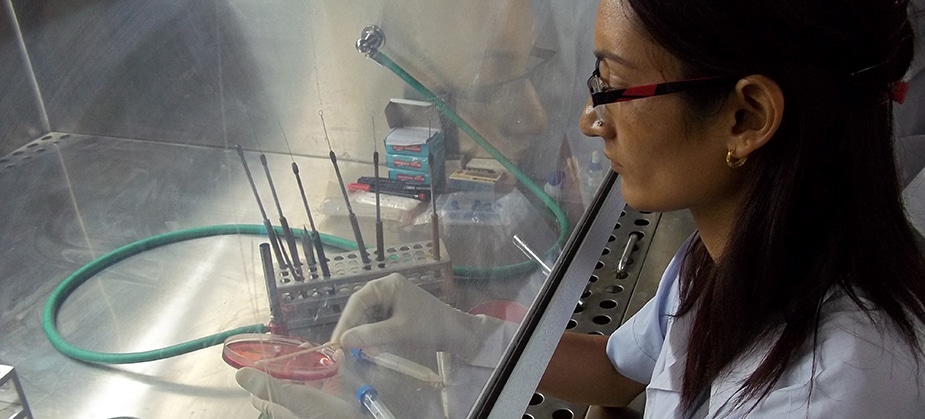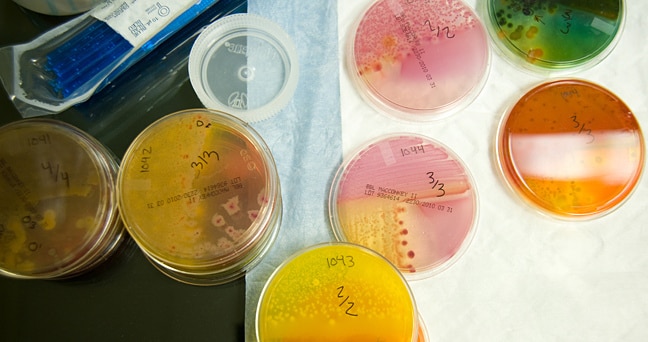Laboratories
Providing fast, accurate, and safe diagnosis

Why Laboratories?
Epidemics cannot be stopped effectively without critical information from laboratories. Laboratories help confirm the presence of disease, pinpoint the cause of illness, and guide the right response to outbreaks. They detect deadly zoonotic threats, track antimicrobial resistance, and discover new pathogens that could jeopardize human health. Experts from the Division of Global Health Protection (DGHP) collaborate with other CDC teams and partner with countries to strengthen global laboratory capacity. Around the world, CDC helps create networks of laboratories that are:
FAST
When every minute counts, laboratory confirmation helps responders take targeted and effective action
SAFE
Biosafety and biosecurity programs reduce the global risk of accidental or intentional release of a biological agent
ACCURATE
Standardized approaches for quality management and analysis of data ensure that lab results are accurate
CONNECTED
Tiered networks at the local, regional, and national levels can transport samples safely and transfer information securely between patients, responders, and policymakers
The Global Health Security Agenda (GHSA) is the effort of over 60 countries to strengthen the world’s ability to prevent, detect, and respond to infectious disease threats. DGHP plays a leading role helping its partners meet GHSA goals, including developing sustainable laboratory networks that can safely, accurately, and quickly identify disease threats so we can eliminate them at the source. Laboratories — and the people trained to use them — are key to safeguarding national and global health security.
DGHP is a trusted leader in global health and knows what it takes to detect outbreaks before they become epidemics. By collaborating with countries and partners around the world, our diverse scientific and technical expertise supports high quality and sustainable laboratory capacity building.

DGHP strengthens laboratory systems through:
Capacity Building
Strengthening the ability to test for pathogens in country, reducing the time to accurately confirm outbreaks and begin a response
Technical Support
Leveraging expertise from across CDC and partners to support host country laboratories during emergencies
Training
Creating global networks of professionals who can conduct testing, analyze findings, manage data, and protect against biosafety and biosecurity threats
Partnership
Working closely with ministries of health and partners to ensure that improvements are measurable, impactful, and sustainable
By The Numbers

12,000+
Individuals have received laboratory-related training supported by the CDC in 45 countries

600+
New diagnostic tests available that were introduced to 70 countries, which improved disease detection capability

88%
GHSA-supported countries with testing capacity for all priority pathogens1
DGHP strengthens laboratory systems through a variety of programs, including:
Active Programs
- Field Epidemiology Training Program
- Global Health Security Agenda
- Global Laboratory Leadership Programme
- Global Noncommunicable Disease Program
- Global Rapid Response Team
- National Public Health Institutes Program
Recently Retired Program
Each country is unique and faces different risks from pathogens. The U.S. will not be safe from the spread of outbreaks until every country is able to rapidly and accurately identify health threats at the source. DGHP continues to expand the worldwide base of laboratory experts who can recognize threats early and sound the alarm. We work with our partners to create a global network of laboratories that serve as a first-line defense against epidemics.
Learn more about our laboratory work through these resources.